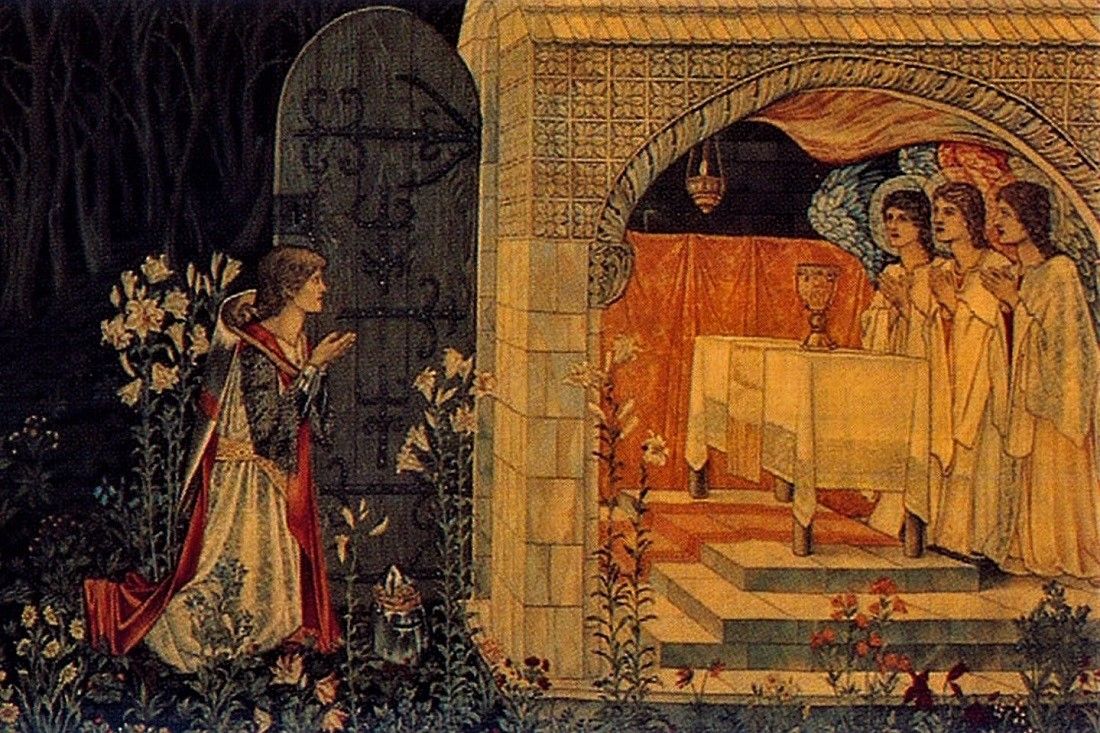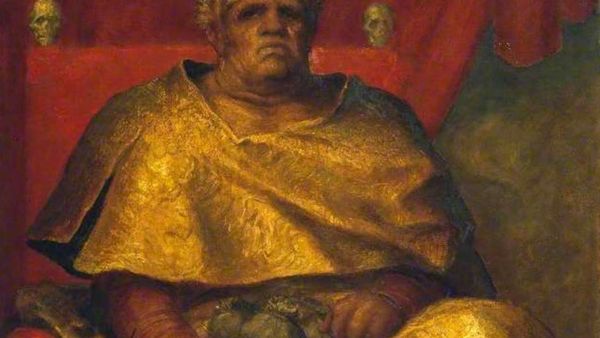With the ghost of the visionary William Morris hovering somewhere in the background, The Politics of Virtue is nothing short of a brilliant, sometimes quirky, compendium of political, economic, and theological perceptions and insights. It is perhaps something only gifted artists such as John Milbank and Adrian Pabst could have produced. As a former classicist and something of a Dorothy Day Catholic, I am drawn by instinct to visions such as this. Even as I have some mental reservations. Divided into five major sections (Politics, Economy, Polity, Culture, and World), the book reads something like an extended position paper for a human-scale future utopia. Not that the authors’ two-part thesis cannot be summarized fairly quickly.
First, they assert that post-Cold War notions of the end of history and the supposed universality of liberalism have been shaken by two developments: the extra-civilizational challenge of Islamism after 2001 and the intra-civilizational financial and civil breakdown after 2008. Moreover, the exposure of the role in these events of the social-cultural liberalism of the left since the 1960’s, and that of the economic-political liberalism of the right since the 1980’s, amount to a twin crisis (“metacrisis” is the authors’ term), especially as the two liberalisms were “always in tacit, secret alliance . . . through their joint espousal of negative liberty.”
Second, the authors argue that politics “now needs a novel and paradoxical blend of two older and nobler traditions: a combination of honourable, virtuous elites with greater popular participation; a greater sense of cultural duty and hierarchy of value and honour, alongside much more real equality and genuine creative freedom in the economic and political realms.” They look for a “newly mutualist approach to both domestic and foreign affairs that substitutes for the dominance of market, state and technocracy the primary of society, culture and interpersonal relationships.” At several points, the S-word is invoked, as here: “But the post-liberalism we advocate seeks to renew long-standing and variously embodied traditions of ‘conservative socialism’ that have been side-lined and eroded and yet have never completely disappeared.”
Of which traditions are the authors speaking? Their vision is of a way forward (“a politics of the soul”) which includes, foundationally, a recovery of both Greco-Roman virtue ethics, reformed through a personalistic Christian anthropology. Or, in their formulation: “a post-liberal politics of virtue that seeks to fuse greater economic justice with social reciprocity.” But there is more. An alternative politics, on this view, is not enough: we need a different social ethos. Indeed the social is more basic, the authors assert, “than either the political or the economic because human society . . . binds together material reality with symbolic substance.” And how might we restore the sense of man as not only “a political or better, according to St. Thomas, social animal,” given our largely deracinated, humanly disconnected condition today?
Readers of Pope Benedict’s Caritas in Veritate—with its language about the “gift economy”, for example—may not be aware the current official version is a second draft written after Benedict asked his advisors that the first draft include a more compelling vision of economic renewal. The result was the inclusion of the work of two outstanding contemporary Italian economists: Luigino Bruni and Stefano Zamagni. They notable for their work in recovering the writings of Adam Smith’s contemporary, Antonio Genovesi, along with several other practitioners of the 18th century Italian school of civil economy, born out of Italian civic humanism and arguably an authentic gift economy. This way of understanding economic relations has as its aim not more freedom of choice but a goal of human flourishing and a recognition of relational goods. Genovesi’s writings emphasized conviviality and economic action as the pursuit of well-being, innately cooperative in its nature. It fuses contract with gift and is thus a vocational economy as well.
Might we explain (the authors wonder in Part II) the craftsmanship—in high-quality cars, machinery, food, clothing—found in Italian products over the last century as owing at least partly to a continuity with Renaissance (and earlier) traditions grounded in these civil economic notions?
It is also notable that the Italian civil economy tradition was strongly infused with elements of Catholic Social Teaching, such as opposition to usury, the just wage, the just price, guilds, distributions of assets, the primary sense of land as sacred, notions of solidarity and subsidiarity. Or in broader, non-Catholic language: reciprocity, responsibility, and redistribution. Thus today’s social benefit corporations (B corps, “triple bottom line” companies, etc.) turn out to have origins in 18th-century Italy. This economic road not taken has meant the dominance of ideas such as the liberal conception of debt as absolute and primary, along with a broken connection between capital and location or vocation.
This is a tragedy because of the way it has precluded labor, the dynamic factor in any economy, from infusing and releasing personal, creative human power. In short, we are describing here an economic philosophy that aims not to abolish the market but rather to wrest it back toward goals of well-being, virtue, and the common good. For an excellent short essay by Bruni and Zamagni, I recommend their Civil Economy. Although it urges a social economy, I do not see how this approach can be described as socialism. Moreover, our politics has become purely a mass spectacle, our citizens doomed to mere specularity, always consumers and spectators. The cry of greed only ignores the nature of the broken system. What form of polity then should we pursue?
One which understands, the authors argue (in Part III), that “what is missing from liberal democracy is the crucial mediation of the ‘few’—virtuous inspirers and architectonic leaders that act honorably and lead by example in all sectors of society.” That is, genuine elites, governing in the name of the good and not merely in the name of the people. More specifically, we need a return to older constitutional themes, for radical—not reactionary—reasons: mixed government with a mixed constitution.
Here the authors’ British backgrounds come out interestingly in their endorsement of constitutional monarchy. After all (as they note), in terms of quality of life, some 7 of the top 10 and 16 of the top 20 countries in the world, are constitutional monarchies, despite the fact that republics outnumber monarchies by a 5 to 1 ratio. If political truth consists in the exercise of the right set of virtues, a monarch is arguably best suited to holding politicians to a higher standard. Whatever the current condition of the Church of England, Milbank and Pabst do not see an established church’s role as sanctifying the state nor supplanting the government as elected and representative. Instead, it should “inform” public institutions toward both the individual virtue and shared sense of public honor without which democracy cannot function or thrive.
Part IV (“Culture”) might be described as the prescriptive European answer to Allan Bloom’s diagnosis in his Closing of the American Mind. In the authors’ words: “Liberalism enforces an equality of learning that undermines the hierarchy of value on which true education or vocation depend.” They add, interestingly, “It also destroys the fusion of high with folk culture.”Contra most modern notions, what if the main reality of all human association—including the political—is itself psychic? “It is to do with friendship (as both Plato and Aristotle taught), with benevolent generosity (as they also taught in common with Confucius and Buddha), and with a reciprocal sharing of the common good . . . only secondarily about distributing material goods and designing law codes.”
Our predicament is due to the way liberalism has come to dominate mass culture in the second half of the 20th century, that is the point at which the consumer replaced the worker. The authors cite another unintended consequence of this shift: “As Huxley noted, sexual permissiveness is a kind of opiate which covertly reconciles people to their loss of other freedoms, both civic and economic.”
Milbank and Pabst, both of them sturdy classicists, are outlining in this brilliant section a recovered sense of paideia, i.e., an education to produce citizens of philosophic and civic virtue. Authentic education would pass on a tradition as well as encouraging individual expressivity from the outset. “Today, this would amount to a ‘third way’ in education also, with spontaneity and teaching working together.” Descending slightly to a list of “transformative ideas”, mostly with the U.K. in mind, the authors include here several pages of policies—amounting to a proposed radical restructuring and re-imagining of the entire educational sector: restoring university self-government, restoring the apprenticeship system, a return to “village colleges,” abolishing all national curricula except the very broadest, “ending the current misuse of digital technology, especially in universities, to destroy the autonomy of teachers and the creativity of students,” and more.
One of the more provocative sections of the book is likely to be Part V (“World”) with its goal of rehabilitating a British “imperial” identity (via notions of commonwealth) as “the most civic, non-racial and non-nationalist available today.” The rationale here is based on a rejection of the Wilsonian principle of national self-determination, the source of our modern nation-building project and its almost “anthropomorphic fantasy” of national consciousness, national will, “as though the nation is analogous to a human being.” The latter logic tends to its own undoing, as in the case of the empire that dares not speak its name, the American global economic hegemony, enforced by its 750 military bases in three-quarters of the world’s countries. Where is the grand alternative to this world system?
Here also the authors seek a kind of third way via an “associationist” alternative in international relations, with the recovery of trusteeship or guardianship as tools in cases of transition economies, post-conflict countries or failed states. The latter system, in the authors’ view, would be dependent upon some shared vision of the common good and once again argues for the social as primary—the flow of religions, customs, influences across borders.
I want to conclude with a few personal thoughts on this book’s brilliant mélange of ideas. First, its conservatism, refreshingly, comes out of a kind of Blue Labour sensibility, one in which the need for a new political economy is taken seriously, and one which requires more of us than an occasional pushing back on consumerist impulses. By contrast with the conservative (in a cultural sense) proposals and critiques of figures such as Roger Scruton and Rod Dreher, Milbank and Pabst describe an incarnational politics which can engage with elements of the Left in various ways. Rather than merely holding up notions of “order” (the lodestar of older Russell Kirk-style literary conservatism) as their sole aim, the authors are unafraid to elevate the need for a new economic settlement as key to any common future.
For many American readers, this push for economic justice matters greatly, especially in the face of the ongoing collapse of both major political parties and the growing sense of system failure across most major institutions. On the other hand, the authors reject other elements of the left, especially feminism, in light of their emphasis on conserving traditional family structures, based on their religious anthropology.
Second, their Christian perspective needs a widening and updating to include the rise of the global South and the “theology of the people”—a revised form of liberation theology baptized by Pope Benedict and developed by Pope Francis (beginning with the Aparecida document of the Latin American bishops). Very much in concert with the authors’ (otherwise mostly Eurocentric) focus, a wider vision would offer a way to address the depredations of neoliberalism by recognizing popular, indigenous cultures as the ethico-mythical core that must be preserved, especially for the global poor—“people who have no way of having,” no possibility of having possibilities, that is, the majority of mankind.
This is the culture war that really counts, one in which evangelizing means looking first at the culture and life of peoples, not to recover what has been lost, but to transform society through Scripture, Eucharist, and a focus on the poor in order that their socio-economic reality can (as it should) challenge our theological ideas with the importance of starting from below, of spiritual childhood and the onset of a kind of cultural death that increasingly threatens whole peoples worldwide. We cannot forget that the Church also needs evangelizing—by the poor. And we should note that this kind of liberation theology depends, as does the politics of virtue, upon a kind of truth and reason, that is, it is not post-modern.
Third, it is not a simple exercise to recall an earlier period in U.S. history when anything resembling this kind of socio-economic transformation—a mix of social conservatism and economic redistribution—took place. Perhaps the post-World War II years through the mid-60’s bear a slight resemblance. In this country and especially in Europe, memories of the sheer extent of human suffering during the war probably created a collective desire for economic security and community rebuilding which laid the foundation for the boom years of the 1960’s. But as Tony Judt has written, we have forgotten many things, including the nature of war. Could a conservative socialism somehow emerge—in this country or elsewhere? If no socialism of any kind gains political ground, then I would say our American decline into a mix of tyranny and anomie will continue.
Finally, this proposal also needs the global vision of thinkers such as Adam K. Webb, whose project to explore notions of a “deep cosmopolitanism” imagines fusing globalization with revitalized cultural traditions. The common ground across world culture, in Webb’s remarkable synthesis, must be more profound than a thin layer of consumerism and perhaps human rights. Through “talking across traditions,” as he puts it, we might hope a new kind of global citizenship can begin to emerge, one which could indeed include a virtuous politics.
EDITORIAL NOTE: This is a review of John Milbank & Adrian Pabst, The Politics of Virtue, by John Milbank and Adrian Pabst, Rowman & Littlefield, 2016.


